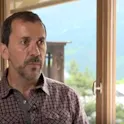
Sustainability
08 Nov 2016
How growing more legumes could relieve economic stress
Two major dependencies can be alleviated by increasing legume cultivation. These are the dependency of nitrogen fertilizers and the dependency on imports.

Sustainability
08 Nov 2016
Two major dependencies can be alleviated by increasing legume cultivation. These are the dependency of nitrogen fertilizers and the dependency on imports.
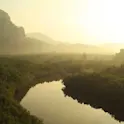
Environment
30 Sep 2016
Frontiers scientists from around the world talk about current global issues and how industry and research need to work together to build a sustainable future – through Open Science.
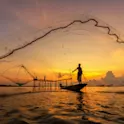
Environment
30 Sep 2016
by Emily Barker, Frontiersin.org In the Bay of Biscay, the anchovy catches went from 90,000 tons to less than 10,000 tons in the early 2000s. After intervention from scientists and the European Union, the population recovered and is now at its highest level since the 1980s. Anchovies are an important resource for people living on the coast, and just one of the stories, which show that by linking science and policy – we have helped restore the world’s oceans. Angel Borja, Frontiers’ Specialty Chief Editor for Marine Ecosystem Ecology, is not completely pessimistic about the world’s oceans. “The oceans are not being destroyed, this is a bit of a mediatic issue;” he said. Despite the view that there is no hope left for the world’s oceans in the news, there are many areas that are beginning to be restored. “We are doing much better than twenty or thirty years ago;” he said. Angel Borja is the coordinator of the EU funded DEVOTES project, (DeVelopment Of innovative Tools for understanding marine biodiversity and assessing good Environmental Status). He explained that there are some areas where we have seen great improvements in the last decade. This includes estuaries, where the sea meets the rivers, […]

Sustainability
12 Sep 2016
by Emily Barker, Frontiersin.org Modified crops are nothing to be scared of and could be essential in solving the global sustainability crisis, explained Dr. James Lloyd, Deputy Field Chief Editor for Plant Biotechnology in the open-access journal Frontiers in Planet Science. Much of southern Africa is currently suffering consecutive seasons of drought, and farmers in Eastern Kenya have lost more than 80% of their crops due to lack of rain. These droughts, caused by climate change, could potentially leave 36m people across Africa facing hunger. However, there is hope in drought resistant crops. Over a five-year period, a total of 2.9 million farmers in 13 African countries saw their yields increase by 20% to 30% after sowing a variety of drought-tolerant hybrids. “I think that using this type of technology has huge potential to increase crop yields and I would be optimistic that we can increase food production as we need to in the next years or so,” he added. Making modified starch more ecofriendly Dr. Lloyd and his team, who are based in South Africa, have currently been working on increasing the amount of phosphate that’s bound to starch by manipulating plant genes. Modified starch is used by the paper […]

Environment
23 Aug 2016
Researchers read into the biological history of plants to reveal how plants will survive when birds and bees fly away.

Sustainability
15 Aug 2016
by Hedwig Ens, Frontiersin.org Ever thought of putting sewage on your plants? Scientists say thermally conditioned sewage sludge serves as an excellent fertilizer to improve soil properties. This was recently published in the open-access journal Frontiers in Nutrition. The major advantage over commercial fertilizers? Sustainable re-use of essential and finite phosphorus resources. Phosphorus is a key nutrient for all living beings. When deficient in the diet, it severely compromises human health, and when deficient in agriculture, it restricts crop productivity. Without phosphorus, there can be no food production. As the source of phosphorus is non-renewable phosphate rocks, there is a strong need for increased recycling to ensure phosphorus security. Efficient use and reduced environmental dissemination of phosphorus throughout the food system is needed to secure the ability to feed a growing global population. As technological improvements increased the phosphorus content of sewage sludge, it now is a readily available alternative to commercial fertilizers in agriculture. To assess its effectiveness, Andry Andriamananjara from the University of Antananarivo (Madagascar) and his colleagues used a phosphorus radiotracer technique to measure the availability of phosphorus for plants in thermally conditioned sewage sludge. They grew ryegrass in pots filled with soil that underwent isotopic P-labelling, […]
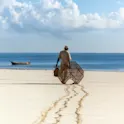
Environment
05 Aug 2016
by Brittany Alexander, Frontiersin.org Marine fisheries catches have been drastically under-reported in the Turks and Caicos Islands in the Caribbean, threatening the marine environment and livelihoods of the local community, reveals a recent study published in the open-access journal Frontiers in Marine Science. Actual catches on the islands were an alarming 2.8 times, or 86% higher than that reported to the FAO, and this has very troubling implications. Lead researcher Aylin Ulman, recently based at the Sea Around Us, and her team call for urgent action from policy-makers to ensure the future sustainability of the fishing industry in this archipelago nation. Fishing has historically been the main industry in the Turks and Caicos Islands and in some areas up to 75% of locals are involved in the fishing industry. The rise in tourism is creating more demand for locally caught seafood and is placing increasing pressure on local marine life. The islands operate small-scale fisheries for queen conch, Caribbean spiny lobster, and finfish as the three main targets. The local government is required to report all catches to the Food and Agricultural Organization (FAO) to be able to trade with signatory nations of CITES (Convention on International Trade in Endangered […]

Environment
11 Jul 2016
by Nina Hall, Journal Development Manager Frontiers in Marine Science is proud to launch the first edition of our annual Research Topic Horizon Scan 2017: Emerging Issues in Marine Science. This Research Topic is unique as it is the only topic that publishes invited review and synthesis articles, and awards the authors with a free publication to showcase the latest and most important research in the marine sciences at the beginning of every year. Each of the invited manuscripts is selected by the Specialty Chief Editors across all twenty-one specialty sections of the journal based on the quality and topicality of the research. If you would like to be considered for selection, please send the title and abstract of your review/synthesis manuscript to marinescience@frontiersin.org for evaluation by the Chief Editors. The submission deadline is October 1, 2016. The average review time from submission to publication for Frontiers in Marine Science is 89 days, which should allow for publication of the manuscript in January 2017 if accepted. Frontiers in Marine Science is the most comprehensive and largest open-access marine science journal with an editorial board of 2,257 editors and over 500 submitted manuscripts, 318 of which have already been published. To […]
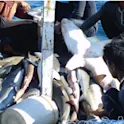
Environment
11 Apr 2016
By Nina Hall, Frontiersin.org The world’s largest shark fin industry lies in the heart of the Coral Triangle, a region of the Indian and Pacific Oceans home to the world’s most diverse coral reefs and known as the Amazon of the seas. This idyllic-sounding environment sustains an industry responsible for the deaths of over 3 million sharks a year. With a reported annual catch of 100,000 tons, Indonesia’s shark fishery contributes more to the international shark fin trade than any other nation. Shark fins are tempting targets for fishermen from Indonesian island communities because they have high monetary value and shark fishing is one of the most lucrative livelihoods in these remote coastal regions. The finning industry presents the main livelihood for fishermen in this region and the enormous profits have transformed remote coastal villages to cash-based communities. But in recent years, shark populations have seen a worrying drop in numbers. The staggering increase in the supply of shark fins to a global market has led to overexploitation of these populations and it not only affects the biological ecosystem but also the highly profitable marine tourism industry. To protect both the sharks as well as the local economy, conservationists and […]

Sustainability
07 Apr 2016
By Fernando Bolaños, Science Writer We know adjusting the thermostat, using blinds, opening windows or using electronics such as a heater or air conditioning unit has an impact on the amount of energy consumed in homes. But a new study looks at which of these is the most efficient when it comes to saving power. “I was interested to find the trends of energy use in typical households and to understand the consumer behavior and the reasons behind high and low energy consumption. I have a strong belief that, if society boosts energy conservation (as well as other resources), we will have less of a challenge meeting future demands,” explained Dr. Gabriel Kamiel. Kamiel and Wei Yang and Yaolin Lin, associate professors at the Wuhan University of Technology in China developed a holistic and integrated model which considered the building enclosure, the mechanical systems, the external environment, the proportion of window opening and the shading factor based on data collected from 270 households including single and multiple units, as well as different heating methods. All houses were located in the city of Oshawa, Ontario, which is located 55 km east of Toronto, Canada. To calculate the building energy consumption, the […]
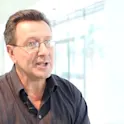
Climate action
05 Apr 2016
By Michelle Ponto, Science Writer The 2015 Paris Climate Conference (COP21) led to a shift in focus in climate change research towards finding solutions. The hope is that these solutions will prepare society to adapt and mitigate the consequences of a warming planet, but the research shift to finding solutions is not easy. “An important aspect that has made climate change difficult is that energy is an intrinsic component of our lives and our activities – from food production systems to transit systems, to adaptation systems,” said Carlos M. Duarte, Field Chief Editor of Frontiers in Marine Science and Tarek Ahmed Juffali Research Chair in Red Sea Ecology at King Abdullah University of Science and Technology. Because energy affects so many aspects of our lives, Duarte says it’s difficult to address the issues on how to build systems that are both efficient and don’t contribute to the problem of climate change without encompassing a whole array of disciplines. An example he gives is LED technology. While these lights are saving cities money and use less energy, they create light pollution that is drastically greater than traditional light bulbs. According to research, this could disrupt the behavior patterns of nocturnal animals, the […]

Sustainability
20 Mar 2016
By Kirsten Martin In conservation, there is an ongoing debate over triage. Advocates of triage argue that some extinctions are unavoidable, and that fixed, limited and fully fungible resources are therefore best allocated where they are most likely to yield the largest conservation benefit. That is, they perceive conservation essentially as an economic optimisation problem. But the opponents of triage believe the opposite. They argue that species recovery is possible no matter how few individuals remain, that small peripheral subpopulations may contain genetic diversity not available in larger core populations, and that funds and resources are neither fixed nor fully fungible. They think that conservation resources are at least partly tied to particular sites and species, and can be increased. Needless to say, both sides have strong opinions and more research and case studies are needed to gain a further understanding. The Frontiers Research Topic “Triage in Conversation” hopes to shed a brighter light on the debate. Professor Ralf Buckley, Specialty Chief Editor of the section Frontiers in Conservation, recently wrote an article entitled “Grand challenges in conservation research.” We asked him about the debate and the importance of this research. Tell me about the Research Topic (the research area […]
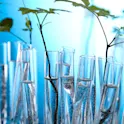
Environment
16 Mar 2016
We asked Martin Siegert what prompted the “Environmental Sciences in the 21st Century?” challenge to learn more about his goals for the field and his mission for the journal.

Environment
12 Feb 2016
Christian Voolstra is working on establishing a model system for corals to help in the research that scientists cannot do in nature.
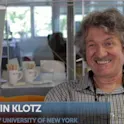
Sustainability
13 Jan 2016
Ever since he was a child, Prof. Martin Klotz simply wanted to know. “My favorite game was in my father’s study. I was laying on the carpet with the Brockhaus encyclopedia and I would just open a random page and read until I was tired. I was interested in all sorts of things. I was a Physics undergraduate student, I then moved into Biophysics and then Biology, simply because I wanted to know. I was curious and still am and that is what motivates me,” he said. Klotz is the Dean of Faculty, Division of Mathematics and Natural Sciences, and a Professor in the Department of Biology and the School of Earth & Environmental Sciences at Queens College, The City University of New York (CUNY), in Flushing/Queens, New York. He is the Field Chief Editor of Frontiers in Microbiology. In addition to being a professor he remains a scientist at heart and focuses now more on the theoretical aspects of the work that he has done in the past. “I have switched along my career but have mostly focused on Microbiology, and in particular on the capability of bacteria to modify their microenvironments. I have been interested in how […]
Get the latest research updates, subscribe to our newsletter